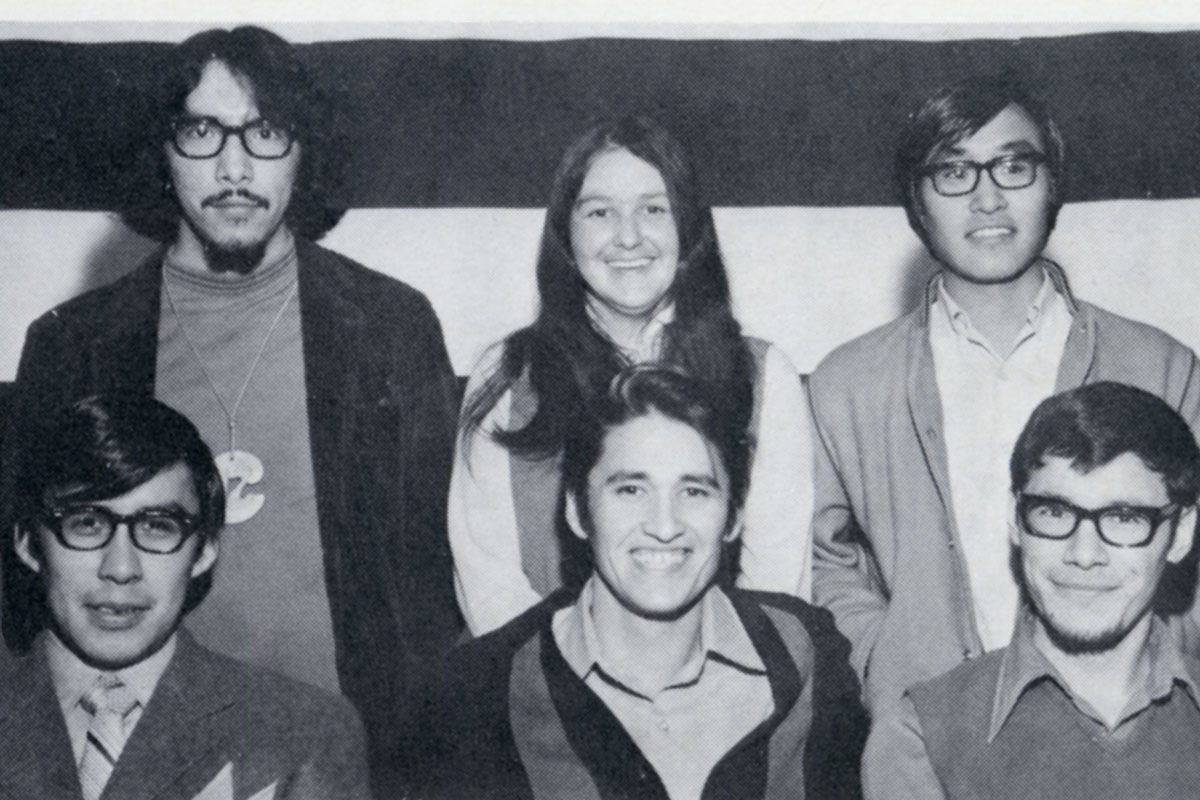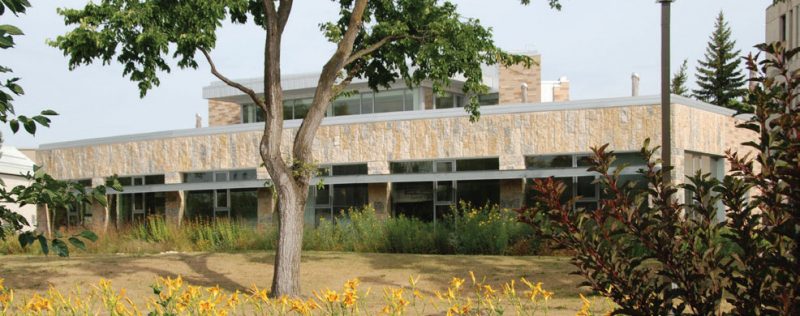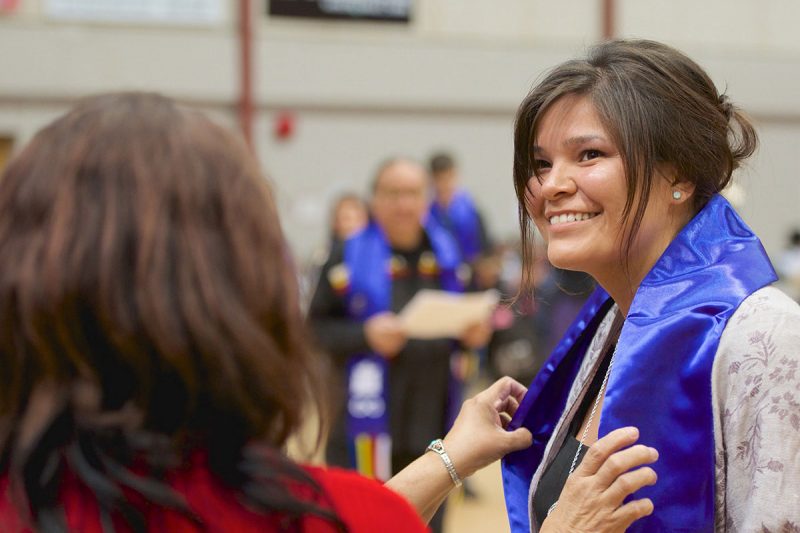
Front row, left to right: Reg Blackbird, Public Relations; Ovide Mercredi, President; Albert Stevens, Vice-President. Second row, left to right: Emile Garson, Committee Chairman; Yvonne Monkman, Secretary; John Allooloo, Member.
Our Path to Indigenous Achievement
What began as an idea shared by a group of forward-thinking Indigenous students has evolved into a legacy of advancing Indigenous achievement at the University of Manitoba.
In the 1970s, students Ovide Mercredi, Elijah Harper, Edwin Jebb and Moses Okimaw—all strong voices for Indigenous rights—were among those who advocated for and established one of the first Native Students’ Associations in Canada. They went on to successfully lobby for a department of Native Studies at the U of M. The department was established in 1975 and celebrated its 40th anniversary in 2015 as an international leader in the field.
The same group also envisioned a dedicated safe space on campus for Indigenous students. Today, Migizii Agamik – Bald Eagle Lodge is a place of pride for the over 2,400 Indigenous students and staff at the U of M.

Migizii Agamik – Bald Eagle Lodge
Opening its doors in 2008, this culturally rich, sustainable building plays a key role in fostering the success of First Nations, Métis and Inuit students. It provides a 24-hour home base and houses programs and services, including the Indigenous Student Centre, Indigenous Achievement and Access and Aboriginal Focus Programs.
In October 2011 the University of Manitoba embraced change by issuing a historic Statement of Apology and Reconciliation to Residential School Survivors at the Truth and Reconciliation Commission.
Committed to playing a lead role in advancing reconciliation and increasing awareness of the history and legacy of residential schools, the U of M and its partners were chosen to host the National Research Centre for Truth and Reconciliation, which opened in 2015.
Today, building on the work that Indigenous students, faculty and staff have been dedicated to for years, creating pathways for Indigenous achievement is a key priority for the U of M, with a goal of advancing Indigenous education and research, and become a centre of excellence for this work.

Indigenous students receive specially-designed scarves at the
annual Graduation Pow Wow, to celebrate their achievements
together. Embedded with elements of cultural significance,
the scarves were approved as official academic dress for
convocation in 2016.






